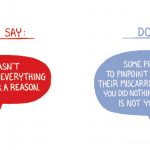It’s been a rough week on the death front: three funerals in five days.
Saturday, I clung to my husband’s hand as we honored and wept for my vibrant and beautiful friend who’d battled pancreatic cancer for 18 months. She was 45. She left behind a husband and three children — 9, 11, and 13.
Wednesday, I sat with former colleagues at the memorial service for a woman I’d taught with for four years early on in my career. She was a force, and, at 61, she had anticipated doing a lot more living. But the cancer that started in her bladder and had spread to other organs had decidedly different plans.
Thursday, I watched, barely able to breathe, as the young daughter and son of one of my closest friends squeezed their bodies next to hers on the pew as surreal images of the life she’d built with her husband flashed across the screen at the front of the church sanctuary.
Related
The Friday before, they’d been driving home from her daughter’s soccer game when their SUV slid on an icy New Hampshire highway and flipped, crushing her husband’s side of the vehicle and killing him on impact. Uninjured, she and her daughter had stood on the side of the dark road and tried to comprehend the words of the incompetent paramedic who’d repeated over and over again, “He’s dead, ma’am, you need to come with us.” Her husband, our friend since college, was 41.
“If one more person tells me they’re sorry about my husband, I might actually punch them,” she confided across the table at a booth at Panera on the day before the funeral. Her red-rimmed eyes were hollow from too little sleep and too many tears. “What am I supposed to say to that when all I want to scream is, ‘You’re sorry? How the fuck do you think I feel?’”
The grief of these tragedies presses at me, clawing and tearing into my own death wounds — the scar tissue left behind after the way-too-soon loss of my beloved father when I was 23. I am so unfathomably sad. Nothing anyone can say will help me make sense of it. And yet, people keep trying.
On the night my friend died of pancreatic cancer, I lay awake, staring into the darkness, my brain taking me places I didn’t want to go. I got up, made a cup of herbal tea, settled on the couch, and, against my better judgment, logged onto Facebook. I began to scroll through the messages filling her page, mostly from friends and extended family who share her Christian faith.
“God chose to bring her home.”
“Our loss is Heaven’s gain!”
“Her wings fly high and her infectious smile will make the sun shine brighter.”
Post after post carried the same narrative: a quick expression of sorrow followed by “but on the upside” language that our culture in general, and our religious culture in particular, seems intent on attaching to grief. It is the language that tries to pretty it up, looking for the silver lining to make loss palatable. Language that denies the mess that death, whether expected or not, leaves in its wake and language that unintentionally denies the griever the chance to be messy.
“It could have been so much worse,” people have said of Friday night’s car accident, waiting for me to nod my agreement. “At least she’s not feeling pain anymore,” they’ve said of both my friends’ ends to their cancer journeys, expecting me to breathe a little easier.
My uncertain faith stretches toward the fragile hope that there is life without suffering beyond this one. My mind clearly understands that Friday night’s accident could have also killed my friend and her daughter, and I am grateful that it did not. But saying these things right now, emphasizing the perceived “good part” and coupling it with the trite (and Hollywood, not theological) sentiment that Heaven is rejoicing over its newest angels, does not comfort me. It does not negate the ugly truth I know. The ugly truth I’ve lived.
Melanie Brooks is a writer, teacher, and mother living in Nashua, New Hampshire, with her husband, two children, and yellow Lab. She completed an MFA in creative nonfiction at the University of Southern Maine’s Stonecoast program. She is working on two books: her nearly-completed memoir about losing her father to AIDS in 1995 and her forthcoming book with Beacon Press, a collection of candid conversations with contemporary memoir writers called “Writing Hard Stories.”












